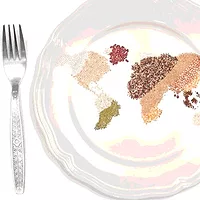Social License: What It Means for Food Safety

A new word has entered the lexicon of agrifood businesses: social license. Social license is described as the privilege of operating with minimal formalized restrictions (legislation, regulation or market requirements) based on building and maintaining public trust. Not a bad idea. After all, it can bring more attention to underemphasized issues such as food systems in northern communities, climate change mitigation and innovation in food safety. However, what is less clear is who should “grant” these so-called licenses, how it can be earned and what values are considered in the modern public court of opinion when it comes to social license in food.
Social licensing in food: Beyond the foolish noise
While some consider this a buzzword, or even a harmful fad, others believe the idea of social license to be transformative. It is a concept and will likely remain as such, but it is gaining traction. Coined by a Canadian mining executive back in 1997, the concept of social license has made inroads in the minds of food company executives and most importantly, consumers. Even policy makers are making an overture for the concept as work is being done to support national agricultural policies. Despite this, it is challenging to fully appreciate what social license actually means for the future of food safety in our country. Social license to operate (SLO) is the ability for any organization to operate with the confidence of stakeholders and that its activities are deemed morally and socially legitimate. Companies are judged based on a set of values collectively shared across the continuum of food system stakeholders.
Ultimately, all of us, companies, government and consumers alike, aspire to co-own food systems. Through social media, consumers have acted fiercely on their co-ownership rights in recent years by expressing concerns related to issues which were, at one time, perceived as obscure. Just this year, we have seen several cases affecting food systems such as the price of cauliflower rising to $8 in the winter, the foodborne illness outbreak with Chipotle, Leamington-based French’s ketchup de-listing at Loblaw and U.S. beef at Earl’s Restaurants. More cases will surely occur in the future.
All of these incidents were perceived breaches of social license. Consumers are the CEO of food systems, making calls based on imperfect information, while everyone else struggles to follow. Clearly at the heart of social license is the creation and retaining of trust.
What makes social license so challenging in the food industry is how difficult it is to identify shared values—each stakeholder or group has their own agenda. Food, which is consumed every day, is a culturally charged aspect of our lives that is profoundly influenced by numerous socioeconomic factors. To identify specific common values in food across the country is close to impossible. For example, while some believe animal welfare and organically grown food to be essential virtues of our food systems, others simply do not. Low price is certainly a high value to some but not at all to others. Furthermore, access to real-time data and portable technologies have made the market place fickle. Shared values can change almost daily now.
Furthermore, what is also missing in the public discourse is how consumers could also earn social license through reducing waste and becoming more educated about food systems in general. Co-ownership is not just about how we seek benefits from a system, but is also about engagement. In order for a social licensing process to work consumers need to be accountable to themselves.
Our unease with this debate is how it is unintentionally excluding some stakeholders. With food price points moving up, we are in fact dealing with an increasingly two-tiered food system in North America: the ‘haves’ and the ‘have-nots.’ The haves can afford to recognize market failures and social license breaches as the industry attempts to gain more legitimacy in the eyes of apprehensive consumers. However, the have-nots are often forgotten. For them, food is essentially a question of survival and the quest for social license by industry is inconsequential for them. Food origins, farm and processing practices are trivial matters: in their view, an unnecessary issue. Affordability and nutritional security are their concerns. There are many consumers who feel completely disfranchised and cannot fathom the thought of co-owning anything, let alone food systems.
However, making food secure and safe is and should undeniably be imbedded in the process of social license for the industry. Addressing food security is not just about making food affordable. It is really a matter of striking an equilibrium between what should be supplied to the marketplace versus what is required for markets to become nutrition secure.
For the time being, discussions around the food industry’s social license have been uncharacteristically exclusive, but they cannot remain this way. The very essence of social license is transparency, inclusiveness and informed consent. Whether we agree with the concept of food social license or not, or even think that it has always been there, we now have an opportunity for stakeholders to make the food industry more democratic, more accessible and relevant to the broader public.
What needs to be underscored is a social license cannot be bought; it is achieved the old fashioned way, by earning it.
Sylvain Charlebois is dean of business management at Dalhousie University.
Brian Sterling is president/CEO of SCS Consulting.
Looking for quick answers on food safety topics?
Try Ask FSM, our new smart AI search tool.
Ask FSM →







